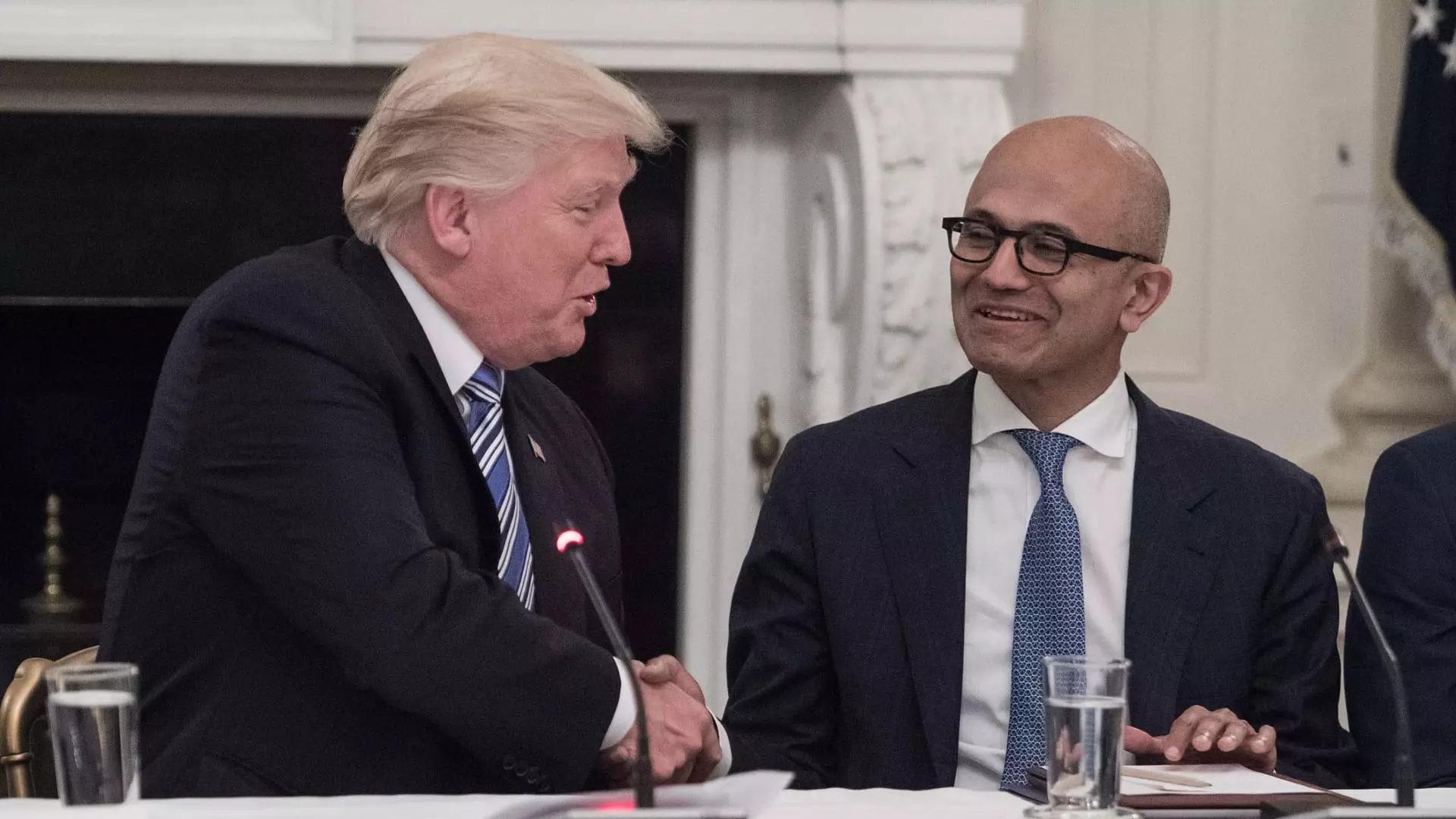In a striking move reflecting the intertwining of politics and technology, several major tech companies are pledging substantial donations to support the inauguration fund of President-elect Donald Trump. Microsoft’s recent announcement of a $1 million contribution places it in line with well-known industry players like Google and Meta, both of which have made similar financial commitments. This trend marks a significant shift in corporate strategy, where tech giants are increasingly aligning themselves with political leaders to secure favorable policies and influence future regulations concerning their industries.
These financial contributions not only showcase corporate philanthropy but also highlight an understanding among tech executives of the benefits that arise from establishing strategic relationships with sitting presidents. For instance, Sam Altman, the CEO of OpenAI, and Tim Cook from Apple are also reportedly making significant donations, while Elon Musk has taken a more advisory role, sharing insights with Trump as he prepares for this new chapter. This wave of donations underscores a broader narrative wherein tech companies seek to embed themselves within the policy-making process that could impact their business operations, particularly in areas such as artificial intelligence and data privacy.
Microsoft’s involvement isn’t a new phenomenon. The company previously contributed $500,000 to both Trump’s inaugural fund during his first term and to President Biden’s fund later. Such balanced contributions suggest a business strategy intended to maintain neutrality and foster relationships with both sides of the political spectrum. Satya Nadella, the CEO of Microsoft, has actively engaged with Trump through discussions about pivotal tech issues, including the high-stakes negotiation concerning TikTok’s operations in the U.S. This engagement signifies that tech executives are not merely passive observers of political landscapes; rather, they are willing participants actively seeking ways to influence policy formulation.
An underlying motive for these contributions appears to be aligned with the tech industry’s push for favorable AI policies. Microsoft’s vice chair, Brad Smith, articulated this sentiment in a recent blog post, emphasizing the necessity for a strategically sound international approach to enhance American AI capabilities globally. This desire for a robust policy framework reflects a growing concern that the U.S. must compete against other global leaders in the tech arena. It illustrates how corporations are increasingly leveraging their financial resources not merely for philanthropic purposes but as strategic investments to shape their operational landscape.
As corporations like Microsoft and others deepen their financial ties to political institutions, a new era of corporate-political engagement emerges. This trend raises questions about the implications for democratic processes and the potential for corporate interests to unduly influence governance. While these contributions might advance specific technological advancements under favorable political conditions, they also spell a pressing need for a transparent dialogue regarding the role of money in politics, particularly as it relates to crucial sectors that impact everyday lives. The narrative is beginning to center on how corporate power will interact with political authority in shaping the future landscape of technology, policy, and ethics.


Leave a Reply